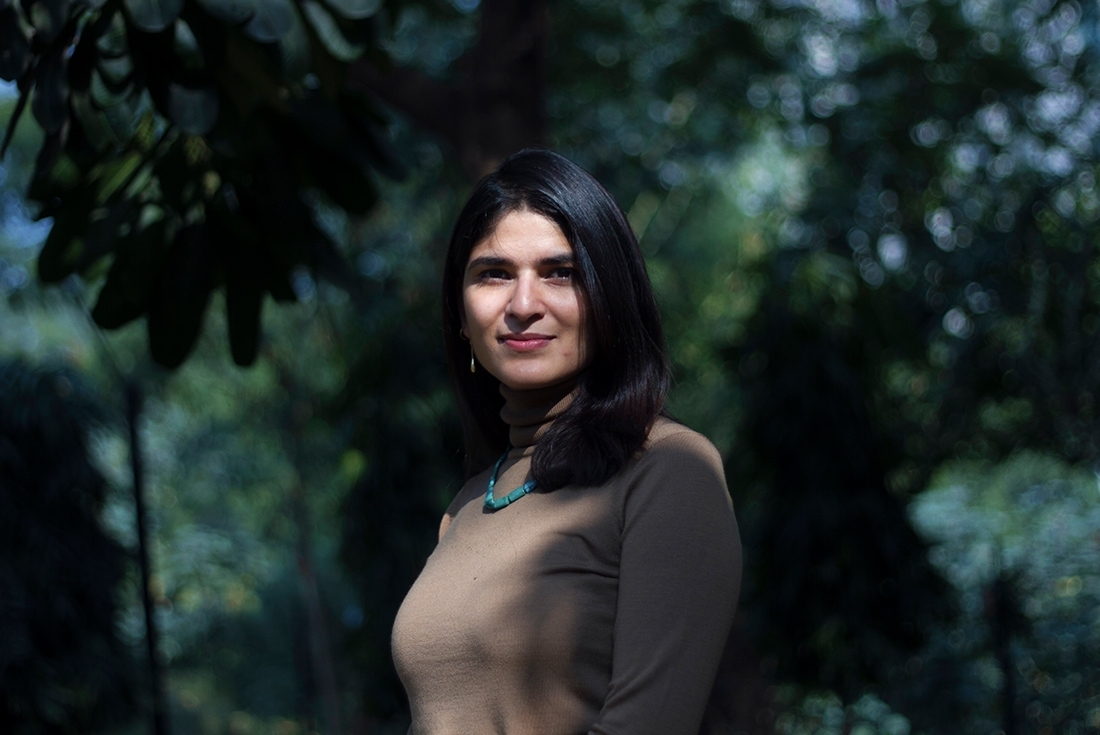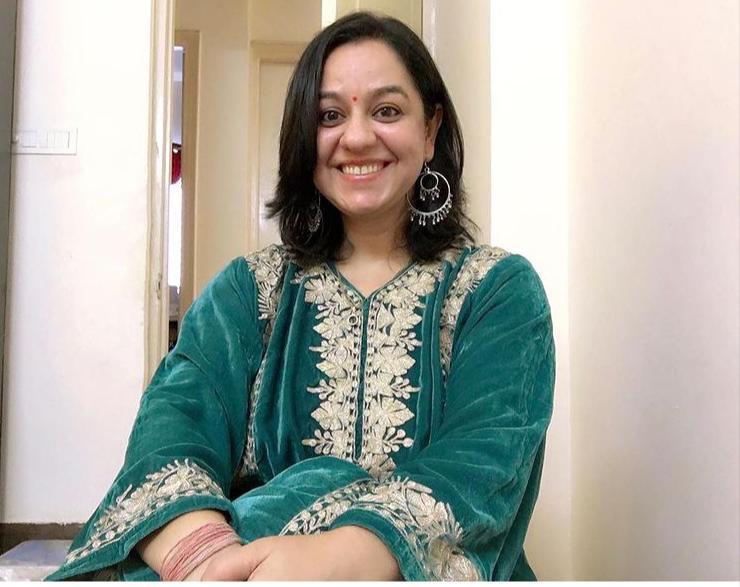DWA 2019: Kitch.in Founder Priya On Digitalisation Of Her ‘Traditional Cookware’ Entrepreneurship Model
- IWB Post
- December 2, 2019

Slowly and gradually, sustainable practices are finding way into all areas of our life. And needless to say, the change is much needed. From reducing the use of energy, to eating locally produced foods, saving water, recycling products, switching to menstrual cups, the list of things that we can start with adopting in our personal lives goes long.
And in adherence to the said ideology, is Kochi-based social entrepreneur Priya Deepak’s venture, Kitch.in. Established four years ago as Village Fair, the idea behind is to ‘bring traditions alive’ through sustainable cookware practices. Remember your grandparents or the elderly at home using iron karahi (deep cooking-pot) to cook vegetables or matka (earhten pot) to store water? Ever asked them why, or thought about why they got replaced by fancy stainless steel and aluminium pans etc.?
Kitch.in not only has answers to all these questions, but also solutions for taking us back to using healthy cookwares – from where should begin our journey of making the food aspect of our lives sustainable and nature-friendly!
We met with Priya at the Digital Women Awards by SheThePeople recently, and after a quick introduction to her remarkable start-up, indulged in a wholesome conversation about her journey. From the conception of this unique idea, to transforming it into an entreprenurship model, Priya enlightened us on the type of raw materials they use, the process of seasoning, her brilliant team of women artisans, how digitalisation is helping her scale the business, and a lot more. Read on:
Take us back to the time when you laid the foundation of ‘Village Fair’.
We were two co-founders. What happened was that one day we came across a facebook group page, which had a discussion going on about ‘how to infuse properties of iron in food’ and someone had commented that they do so by dropping a piece of cast iron in food. That thread took us back to one of Kerala’s oldest tradition, of using seasoned cast iron cookware in homes for the necessary bout of iron.

Over the years, we lost this tradition because we switched to the easy fancy cookwares available in the market – which we are all aware of how toxic they can be, especially when continued to use beyond their limited life period. That’s how we gradually moved towards unhealthy cooking practices and we need to come back, but we couldn’t have used the same raw pieces from yesterday. They needed to be seasoned and made ready for use, and that’s how ‘Village Fair’ (now Kitch.in) came into existence, to provide a fully traditional seasoned cookware, ready to use for customers.
Other than cast iron, which other materials do you make use of?
We have a lot of categories: cast iron, clay, stone, bronze, wood, bamboo, and we are looking forward to discovering more in other parts of India. Our country is so diverse, and there’s so much we can do to bring alive the fading traditions. So far we’ve only explored our home region, the South of India, but there’s North and East, where I’ve already discovered some appropriate to cookware material like stone pottery.
I want to continue nurturing Kitch.in, and broaden its horizon, to have as many people know about it and reap its healthy benefits. We will have many different products and just not in India, even abroad.
The art of seasoning that you talked about, do you also teach it to people?
We make a lot of videos and try to educate people about it. We also post recipes, and provide care instructions on how to use it, things to keep in mind for use etc. These cookwares once bought, can be owned for lifetime.
Tell us a little about your artisans, is the team women-centric?
So how we go about it is that we buy raw material from different vendors; cast iron we get from foundries where women and men work together, and it is the same for clay too. Then we bring it to our place and season it, which is done by our self help women group. The elderly women who are thorough in this art lead the group and have passed it on to the younger generation. Their work is so fine, they create exact replicas of what we’d find in older times, and earn a substantial amount through this endeavor.
What would be some gender specific challenges that women artisans face in the South of India?
Kerala is a matriarchal society. In olden days, women were the powerhouse, seen as the head of the family. But the scenario is changing for better again, women are stepping out of their homes in attempt to earn using their skill sets. My seasoning self-help group is led by women, and until some time ago when the men decided to join them, it only comprised of women. Having been silent spectators for the longest, it was the impact that this work brought to their livelihood, that they began to learn from the women. Speaking of challenges and at the same time the change that the women artisans are bringing – earlier when I’d I visit their homes, I’d only be interacting with the women, now the men also come and sit to participate.
Social entrepreneurship projects are started with a broader social intention, but they also carry with them a personal story. What is your story?
To be honest, this journey of entrepreneurship is accidental. I wasn’t consciously looking to do a business. I am a home science graduate, and worked in IT corporate for two decades. Also, growing up in an army background, where employment is considered to be the only way of working, business opportunities were never talked about; until today I am the only person from our family to be involved in business. By the virtue of which, no one understands how a life of business person goes. My mom often says to me that it’s great but don’t do so much, why do you have to put so much effort and time into it.
When my co-founder stepped off, the women who worked with us said to me, “there’s no looking back, move ahead, we are with you on this journey.” From then to now, we have come a long way, they are my backbone. Having opted for organic marketing, we sell our products through our own website and are also being requested by sellers in different cities, and online portals like Tata Cliq, Amazon, etc.
You mentioned organic marketing, give us an insight into your customer service strategy.
Today we have reached a stage where our customers love our products and keep immense faith in us. Also, they can reach me anytime via phone call or whatsapp. Sometimes they’d request for a particular product, and if it isn’t found on our catalogue, they’d still want me to search it and buy for them. Their trust is our biggest earning, and the pressure it subjects us to, motivates us to work harder and better.
Today everyone’s looking to make eco-friendly changes in their life, and food makes for a major part of the lifestyle.
Exactly. So many people are opting for organic food, oil, vegetables, dals, but there’s not as much awareness about organic cookware. With so much focus on food choices, why not buy the right cookware, too! But I think the change is in process, slow yet gradual, and we are constantly working towards it.
It is commendable, the thought and effort you are putting towards changing the situation. Tell us about the significance of digital space in this journey of yours?
When we started, about four years ago, we fell in the space of unregistered sellers. Which meant that we couldn’t be in the space of e-commerce and sell digitally. People would react surprisingly, “oh, you sell this – who will buy this online!” I chose the method of organic marketing, and gradually worked on building our website. Four years later, we now sell our products through our own portal and are being requested by offline sellers from different cities, and online ones like Tata Cliq, Amazon, etc.
I feel proud to have made it happen, to be a part of introducing digitalisation in this field, where at one point of time there was no seller, and today there multiple.
 You said that business happened by chance for you, but based on your experience so far, how can social entrepreneurship be used as a new force for a positive change in the country?
You said that business happened by chance for you, but based on your experience so far, how can social entrepreneurship be used as a new force for a positive change in the country?
When the project started scaling, people began to tell me that social and business won’t happen together, and I would say but one thing – the day that will happen, kitch.in and my vision will both be gone. But the one thing that I have understood is that people love to support social impact stories and products. Once they know your story, they get attached, and from there begins a lifelong journey of connect and trust. So, it certainly does bring a positive impact. What one needs to ensure is that they never compromise with the quality of their products, integrity in your work and towards the people associated, is the key aspect to make a project successful. I always say that though we are social entrepreneurs, but without profit, neither the business can be run nor the larger goal will be met. It’s only when we make money and distribute it amongst the members, will the ecosystem expand. And to be honest, it is tough, but very much possible.
Speaking of difficulty in maintaining a sustainable profit model in social entrepreneurship, what has been your experience and major learning in this regard?
Organic building of brand – you need to build your brand in a way that brings in trust, and have people genuinely loving it.
Right set of people in team – as you grow your team, remember to involve people who understand your concept. I don’t hire people who seem to not understand my ecosystem, which consists of my women artisans from the seasoning self help group, and people from humble backgrounds, and non-corporate culture. They understand simple language, trust, and respect. So I won’t ever have an aggressive marketer on my board.
Never dilute your vision – every team member should share your vision. If I am not around, my team will make sure that everything goes on smoothly. Also, if/when you get a partner or investor on board, do not make any compromises.
And last but not the least, Personal connect – a personal rapport with both your team as well as customers. My customers can whatsapp me any time, whether it is for the smallest of things, or problem with the cookware.
 And towards the end, Priya opened up about another goal that she has been working towards, which is to create employment opportunities for young boys and girls at Kitch.in. Upon interacting with the children of the women who work for Priya, she learnt that some of them had studied until graduation and she decided to train them in various skills under her guidance. Today her entire operations and management is handled by them; Priya only looks after strategy as her work week gets spent between Kochi and Bangalore where she has other part-time jobs to look after too. Continuing her mentorship programme, she is also imbibing in them the same attitude so that they can guide the younger ones.
And towards the end, Priya opened up about another goal that she has been working towards, which is to create employment opportunities for young boys and girls at Kitch.in. Upon interacting with the children of the women who work for Priya, she learnt that some of them had studied until graduation and she decided to train them in various skills under her guidance. Today her entire operations and management is handled by them; Priya only looks after strategy as her work week gets spent between Kochi and Bangalore where she has other part-time jobs to look after too. Continuing her mentorship programme, she is also imbibing in them the same attitude so that they can guide the younger ones.
- 0
- 0












